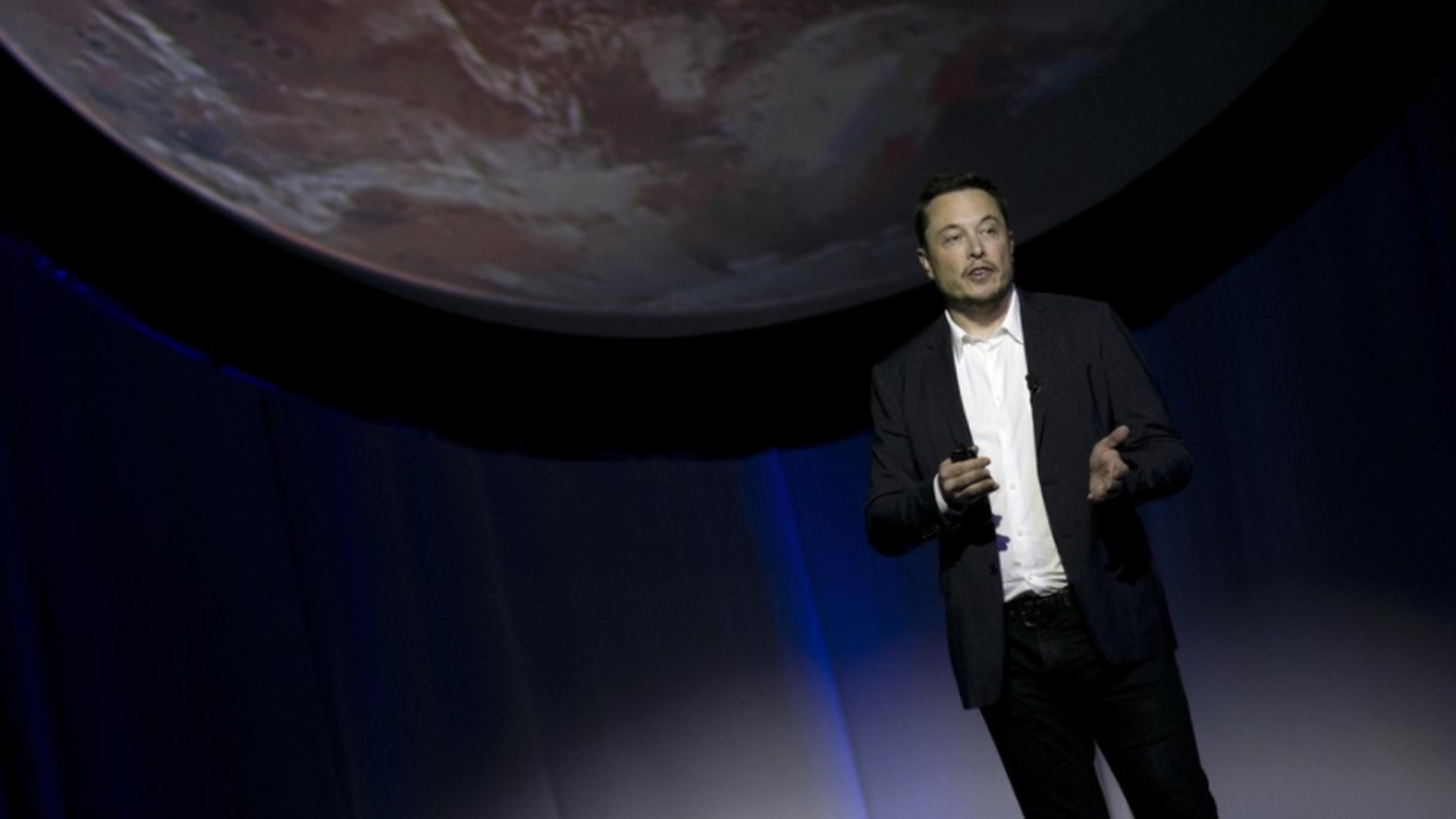Elon Musk's semi-truck battery could cost $70,000, weigh 3 tons
Add Axios as your preferred source to
see more of our stories on Google.

Refugio Ruiz / AP
Elon Musk's latest product — an electric Tesla semi-truck, which he has said he will introduce in September — is less outlandish than some have suggested, according to a leading battery researcher.
Why it matters: Musk threatens to upend the truck-making industry, as he has with electric cars — an analyst with Piper Jeffray this week downgraded and otherwise re-contemplated his ratings on a few makers of conventional semi-trucks in light of the coming Tesla model. In addition, semi-trucks are responsible for an estimated 20% of U.S. carbon emissions in the transportation sector.
Gerbrand Ceder, a materials scientist at Cal Berkeley, says in a back-of-the-envelope calculation that a battery capable of powering a long-haul semi-truck for 500 miles on a single charge would cost roughly $70,000 and weigh around three tons. If fast-charging standards are upgraded to account for the trucks, an hour could replenish about 300 miles of range, he said. Fuel savings could pay it off in fewer than five years.
"Math seems to work out. So not as crazy as people claim," Ceder said in an email exchange. He added, "But it really requires a serious charging network along the interstates."
Here is the breakdown: The lithium-ion battery in an electric Tesla S weighs about 1,200 pounds, a quarter of the car's 5,000-pound total. But, according to one estimate, the battery in an average 40-ton American semi-truck would have to weigh 23 tons. Consequently, Siemens has suggested powering such a vehicle with overhead wires, not batteries.
I emailed Ceder, one of the country's leading battery materials experts, asking whether Musk could really be serious.
He started with an estimate of how much lithium-ion battery capacity would be required to power a truck a single mile. He figured that at 1 mile per kWh, meaning that a 500-mile driving range would require a 500 kWh battery (a basic Tesla S has a 60 kWh battery). (Note that Ceder went high with his mileage estimate, using 10 mpg, when the average truck gets only 6.5). "At 6 kg/kWh, that comes to three thousand kg for the pack," he said. "So three tons seems a reasonable and conservative estimate for this range."
But what would it cost? At the cell level, the cost of such batteries currently is about $120 per kWh, he figured, and could drop to $100. If there are about 70 cells in a battery pack, it would cost $70,000.
As for fuel savings: If a trucker drives 100,000 miles a year and pays about $2.50 a gallon for diesel, fuel costs for a conventional truck would be $25,000. The electrical equivalent for 100,000 miles is 100,000 kWh. At a possible wholesale price of 10 cents each, that would be $10,000 in charging costs, for a potential savings of $15,000 a year.
